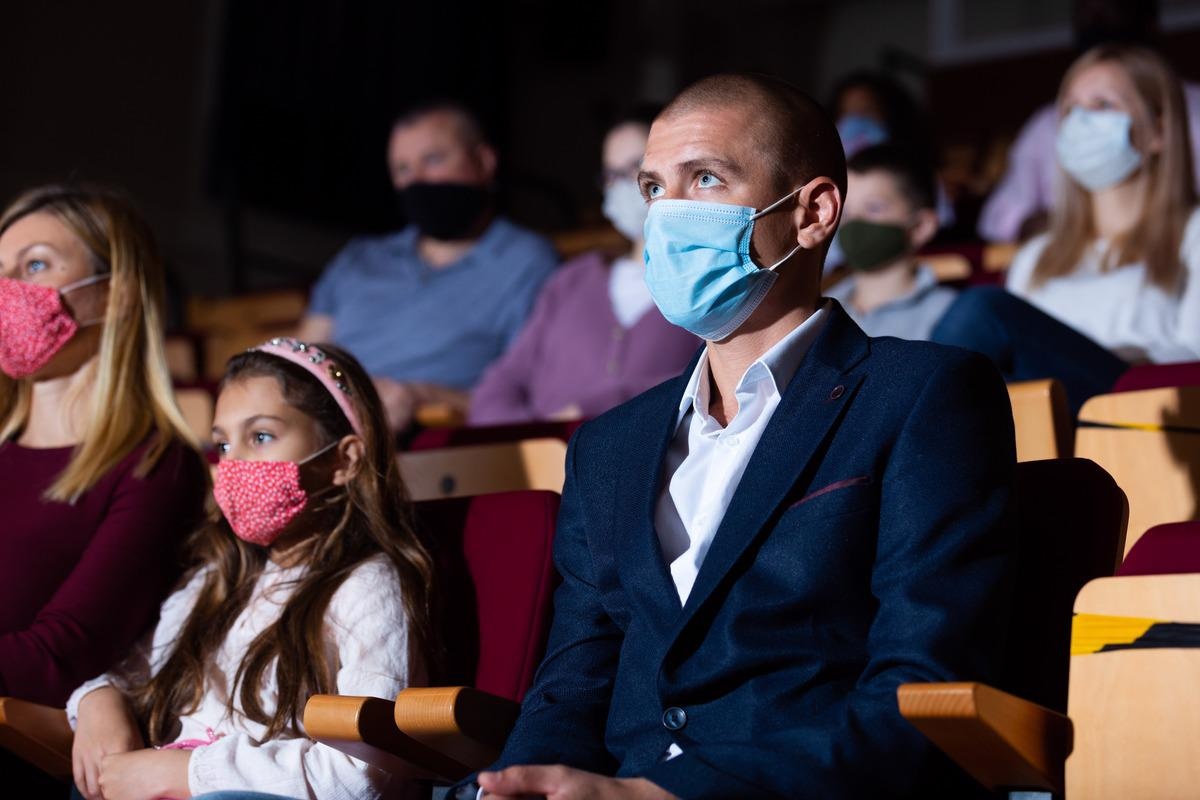The unprecedented coronavirus disease 2019 (COVID-19) pandemic led to the ban of major indoor gatherings worldwide, due to increasing evidence on the higher transmission risk from airborne droplets in indoor settings.
The French government banned gatherings of 5000 or more people in Feb 2020 and banned all mass gatherings from March 2020. By then, it was well established that mass-gatherings were leading to the spread of the severe acute respiratory syndrome coronavirus 2 (SARS-CoV-2) infections at community and national levels.
There was accumulating evidence on the transmission risk from asymptomatic carriers and aerosols in indoor gatherings. Night clubs and live indoor concerts were labeled as ‘super-spreader events’ because they were poorly ventilated and did not mandate mask-wearing. The ban on mass gatherings had serious socio-economic and psychological repercussions on the people working in the events industry, especially the young population.
After remaining closed for over 15 months and with the availability of vaccines against COVID-19, authorities are now mulling over reopening the venues for live concerts and nightclubs.
 Study: Prevention of SARS-CoV-2 transmission during a large, live, indoor gathering (SPRING): a non-inferiority, randomised, controlled trial. Image Credit: BearFotos/Shutterstock
Study: Prevention of SARS-CoV-2 transmission during a large, live, indoor gathering (SPRING): a non-inferiority, randomised, controlled trial. Image Credit: BearFotos/Shutterstock
The SPRING (Study on Prevention of SARS-CoV-2 Transmission at a Large Indoor Gathering) trial tested the hypothesis that systematic screening of SARS-CoV-2 within the three days preceding the event and the use of medical masks by participants can prevent viral transmission in indoor spaces. It is the first such non-inferiority, open label, randomized, controlled trial, and was published in The Lancet Infectious Diseases.
Study design
The researchers working on the SPRING trial screened the attendees of a live indoor concert held in the Accor Arena on May 29, 2021, in Paris, France. The screened attendees, all aged between 18–45 years, were recruited through a dedicated website. They had no COVID-19 symptoms, comorbidities, or recent contact with a COVID-19 infected individual. Also, they tested negative in a rapid antigen test (RAT) done within three days before the concert.
While 18,845 individuals registered on the website between May 11 and 25, 2021, 10,953 got enrolled for an on-site visit. From these, the researchers only screened 6,968 individuals. The allocation sequence was computer generated and used permuted blocks of sizes three, six, or nine. The researchers randomly assigned the enrolled individuals to the experimental group (attendees) or the control group (non-attendees) in a 2:1 ratio, without any stratification. In total, 6,678 individuals had enrolled, of which 4,451 were assigned to the experimental group (attendees) and the remaining 2,227 to the control group (non-attendees).
Results
A total of 88% of attendees and 87% of non-attendees could meet the follow-up requirements. RT-PCR was positive for eight attendees and three non-attendees on day 7, suggesting they met the non-inferiority criterion for the primary endpoint. The analysis yielded the absolute positivity-rate differences of 95% CI between the two groups, with an incidence rate ratio (IRR) of 1·33.
Of the 14 participants with positive saliva on day 0, eight showed RT-PCR-negative saliva on day 7, suggesting they were at a late stage of infection. No participant with RT-PCR-positive saliva required hospitalization. Post-event, four attendees and two non-attendees reported mild COVID-19-suggestive symptoms.
The researchers detected 33,349 faces throughout the event using a computer algorithm. They classified 85% of these as no mask, inadequate, or adequate. Overall median mask-wearing compliance was 91.4%; 90.0% compliance on the arena floor and 97.4% in the lobby and staircases, which remained stable over the 4 hours.
Limitations
This study has two significant limitations. First, the participants were aware of being under observation which perhaps modified their natural behavior, limiting the extrapolation of study results to a real-life scenario. Also, the rate of fully vaccinated participants was 7.2%, and the greater the immunization rate, the lower the incidence of SARS-CoV-2 transmission during the gathering.
The second limitation was that the SARS-CoV-2 infections were on a decline in France towards May 2021 and most of the infections were due to the SARS-CoV-2 alpha variant, which is less transmissible than the delta variant. In such a scenario, the preventive measures used during the trial could have been quite effective.
Conclusion
To conclude, the results of the SPRING trial showed that participating in an indoor live event is not associated with an increased risk of SARS-CoV-2 infection, provided preventive interventions are in place during these events.
Moreover, this trial provides evidence that mass gatherings, including live concerts, can be resumed despite the ongoing circulation of highly transmissible SARS-CoV-2 variants.
Journal reference:
- Constance Delaugerre, Frantz Foissac, Hendy Abdoul, Guillaume Masson, Laure Choupeaux, Eric Dufour, et al. 2021. Prevention of SARS-CoV-2 transmission during a large, live, indoor gathering (SPRING): a non-inferiority, randomised, controlled trial. The Lancet Infectious Diseases. doi: https://doi.org/10.1016/S1473-3099(21)00673-3. https://www.thelancet.com/journals/laninf/article/PIIS1473-3099(21)00673-3/fulltext